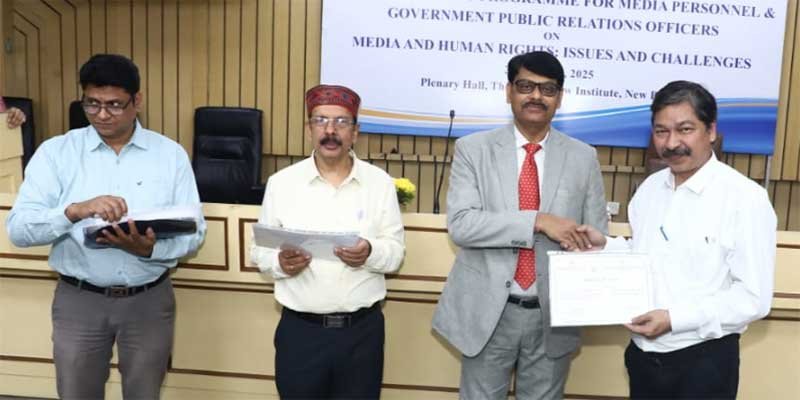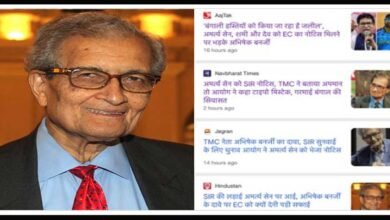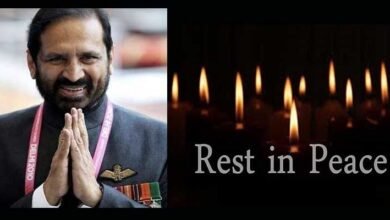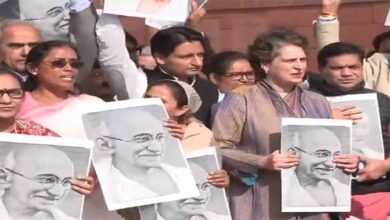ILI, NHRC organise training program for media personnel, Govt.PROs on issues of human rights and challenges
At the end of the training programme, the senior former NHRC official gave away certificates to the Government PROs from Assam, Goa, Madhya Pradesh.....

NEW DELHI- The Indian Law Institute (ILI) and the National Human Rights Commission (NHRC) on Saturday jointly organised a day-long training programme for media personnel and Government Public Relations Officers on ‘Media and Human Rights: Issues and Challenges’ at the ILI here.
Inaugurating the training programme at the Plenary Hall of the ILI, Law Secretary, Department of Legal Affairs, Ministry of Law and Justice, Government of India, Dr. Anju Rathi Rana underscored the crucial role of media for protection and promotion of human rights and the Government PROs to ensure free flow of information for building public opinion on human rights related issues.
Rana, the first woman to hold the post of Law Secretary dwelt at length on the importance and significance of the UN’s Universal Declaration of Human Rights (UDHR) that emphasised on the right of every individual ‘to freedom of opinion and expression that includes freedom to hold opinions without interference and to seek, receive, and impart information and ideas through any media, regardless of frontiers’.
Also Read- Massive Protest by Congress Outside SEBA Office in Guwahati
Rana stressed on the need for accountability and transparency in dealing with human rights issues and their violations in the age of new media
Calling for protection of media personnel from threats and intimidation, Rana said, “As media plays a pivotal role in safeguarding and promoting human rights, there is also the strong need to protect media persons from threats, intimidation, harassment and all forms of violence. Even women journalists are at the receiving end because of online harassment they receive.”
Also Read- BJP Accuses Congress of “Destroying Democracy” After Alleged Attack on Assam Deputy Speaker
Director, ILI and Senior Professor Faculty of Law, University of Delhi, Dr.VK Ahuja, in his welcome address, said the ILI has been conducting customised training courses for judicial, police, media and other stakeholders to sensitise them on human rights issues.
Later, in his address on ‘Human Rights: An Overview’, Prof. Ahuja said human rights are inherent in the very nature of human beings and are intrinsic to their dignity. “If the right to dignity of a person is not ensured, life becomes meaningless,” he added.
Prof. Ahuja said India had been a party to UDHR and International Covenants on Human Rights relating to dignity, equality, and liberty. He said the Supreme Court has interpreted certain rights as part of the fundamental right to life under Article 21, including the right to clean air, healthy environment, water, food, and a speedy trial.
Former Superintendent of Tihar Jail, Sunil Kumar Gupta, in his address on ‘Role of Media in improving prison conditions’ said the media has played a key role in bringing about reforms in prisons by reporting on overcrowding and poor living conditions, lack of access to health care, education, sanitation and hygienic issues.
Also Read- Controversy Over Viral Audio Clip in Assam Assembly
Speaking on his 35 years of experience working in Tihar prisons, Gupta said access of media personnel to prisons as initiated by former Inspector General of Prisons, Tihar Jail, Kiran Bedi during her tenure helped in improving living conditions of jail inmates, exposing injustices, human rights abuses, corruption, raising awareness and giving voices for prisoners and their families to share their stories and concerns in media platforms. “If Delhi Tihar prisons have been frontrunners in reforms, it’s because of the media exposing injustices, raising public awareness and influencing policy changes,” said Gupta, the co-author of ‘Black Warrant: Confessions of a Tihar Jailor’.
“Responsible and sustained media coverage can help bring about positive reforms and improve the lives of prisoners and their families,” he added.
Assam: BJP Accuses Congress of “Destroying Democracy” After Alleged Attack on Assam Deputy Speaker
Senior TV journalist, Sudhanshu Ranjan, in his address on ‘Role of print, television and social media in facilitating justice for victims of human rights violations’ said the guiding principle for media persons must be ‘unraveling the truth by presenting facts as they are’. The eminent journalist pointed out that the phenomenon of ‘fake news’ has been nothing new, it has been in existence since the very inception of civilisation.
In his address on ‘NHRC, Media and Human Rights’, former Joint Secretary, NHRC, Devendra Kumar Nim said the media has to work in tandem with the NHRC to bring different initiatives of the human rights watchdog organisation for general awareness of the people.
Nim said NHRC issues advisories to the UTs and State Governments from time to time for protection and rehabilitation of impoverished uneducated children, women, and differently-abled individuals engaged in begging; protection of human rights of widows; advisory on mental health, welfare of transgender prisoners, prevention and mitigation of ocular trauma, advisory to mitigate, deliberate self harm and suicide attempts by prisoners, advisory for protection of the rights of children against production, distribution and consumption of child sex abuse materials, protection of human rights of truck drivers. “These advisories can be brought to the notice of the general public by the media through extensive coverages in prominent pages. “By bringing these advisories to the notice of the general public and the stakeholders involved, media can exert pressure on the UTs/state governments to act on them,” he quipped.
Nim said the press can pitch in their efforts to ensure the recommendations of the 12 core groups of NHRC are implemented in toto by the Central and state governments and other organisations. “The implementation of the recommendations are binding in some manner, as the Central or, for that matter, the UTs/state governments have to submit report on the floor of the Parliament or State Assemblies as to why they did not implement the recommendations. Media can play a significant role in mobilising public opinion if the UTs/states adopt dilly dally tactics or seem least interested to implement the recommendations,” he added.
At the end of the training programme, the senior former NHRC official gave away certificates to the Government PROs from Assam, Goa, Madhya Pradesh, faculty members from different institutions, students from law and mass communication.









